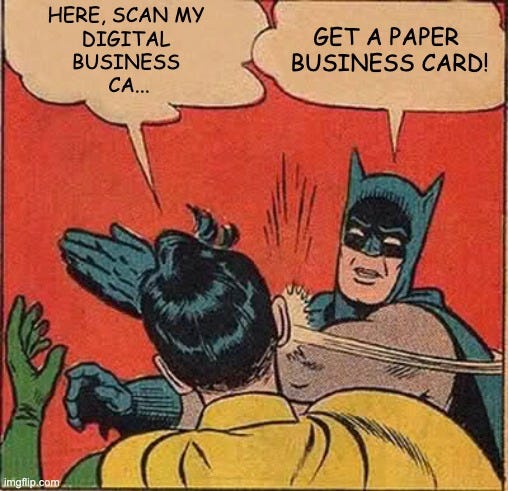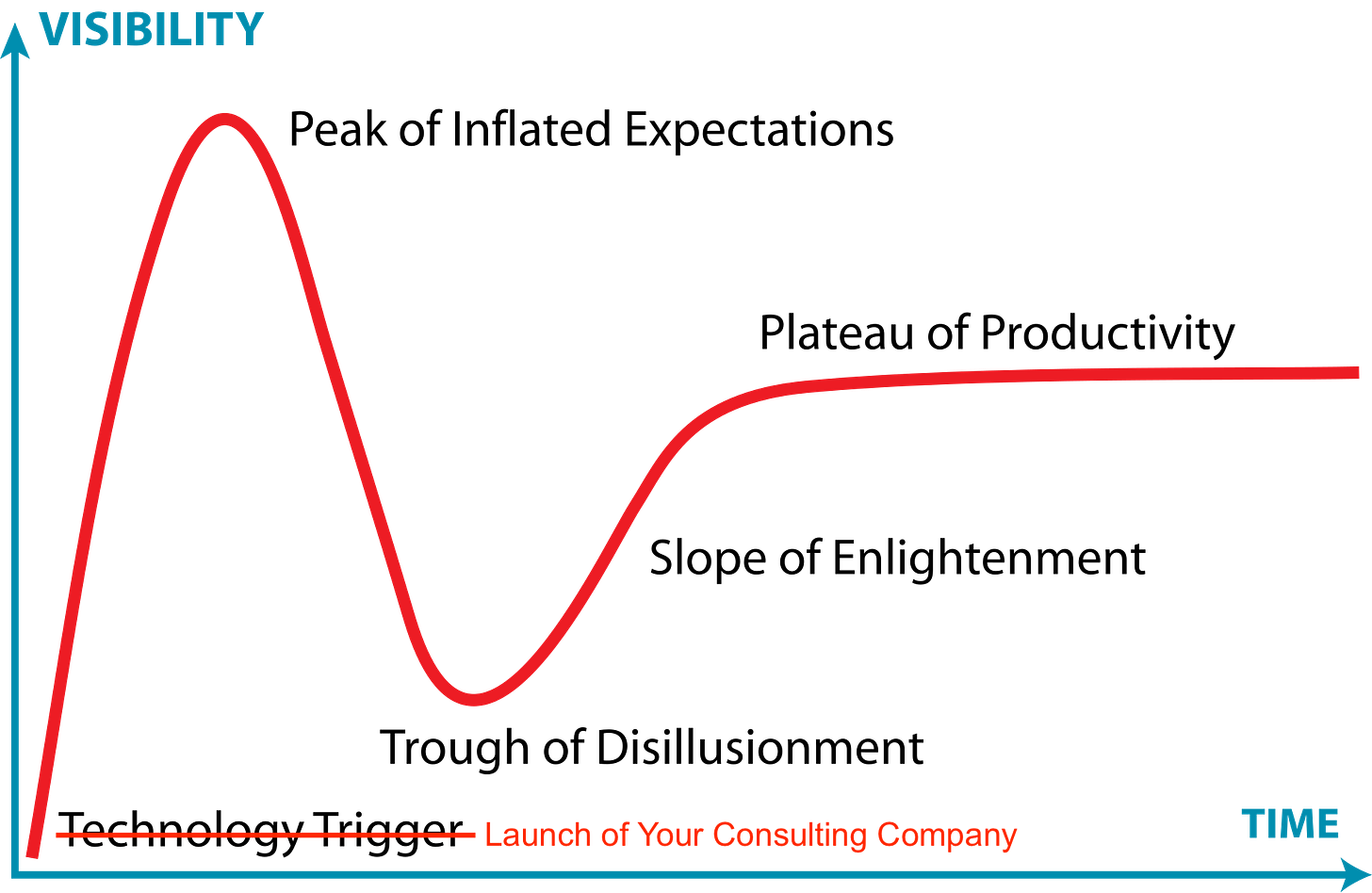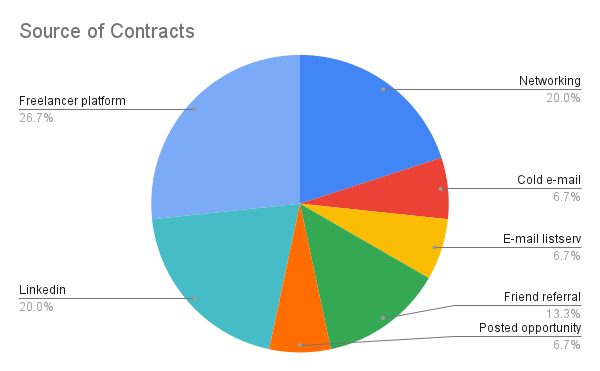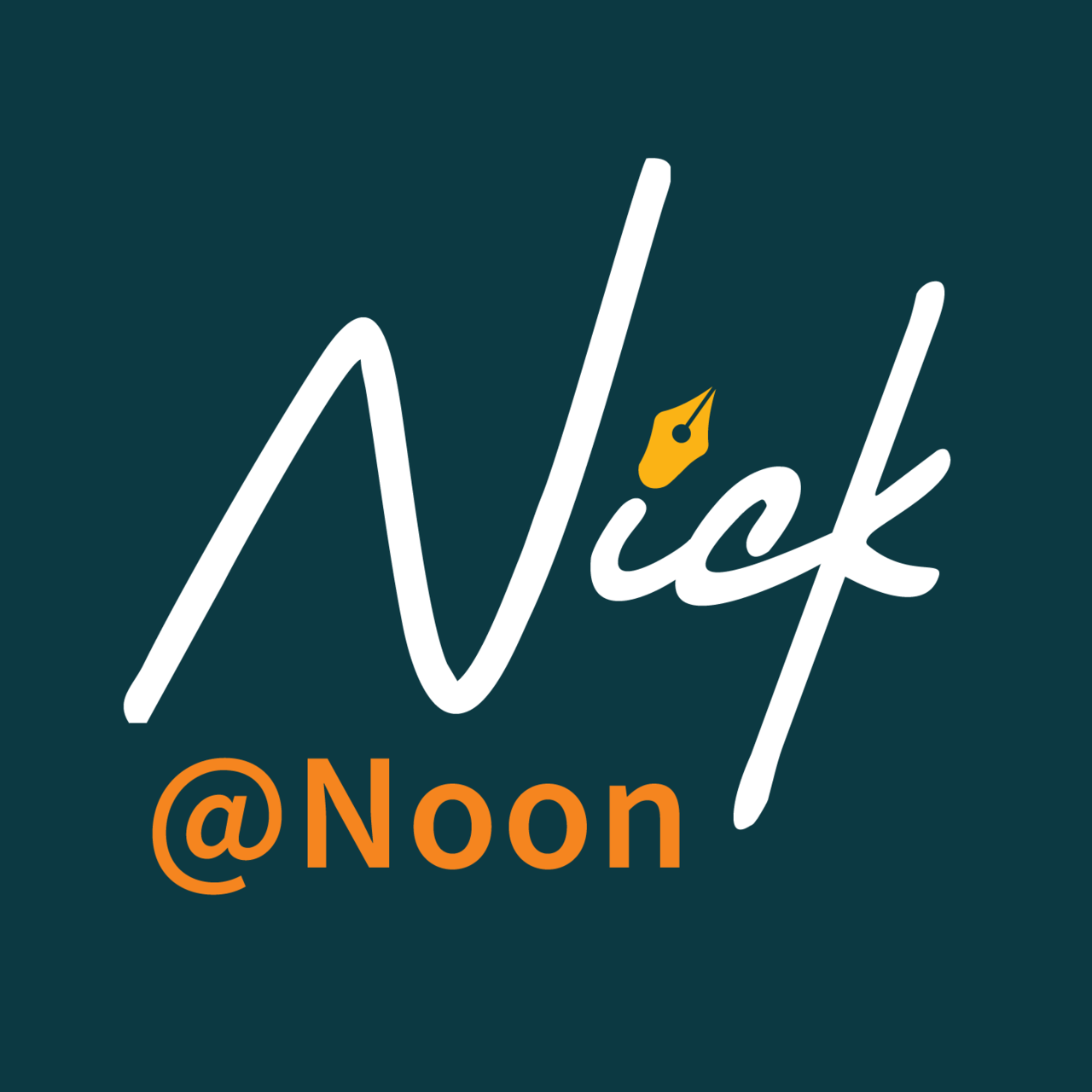In 2017, I had recently completed a AAAS science policy fellowship that placed me at the helm of a $134m nutrition project. I was eager to launch a career in public service. Instead, I found myself re-entering the job market just in time for a federal hiring freeze.
“Find a career you love, and you’ll never work a day in your life… because that industry is not hiring at this time.” -Attribution unknown
And so, I began my journey as a consultant and launched Apothek Advisory as a Limited Liability Company (LLC). I operated the business for two years, with nearly a dozen formal clients, while also providing career guidance and mentorship to young and mid-career professionals interested in global health. In 2019, I froze operations to start my role as a public health diplomat with USAID. Now, I’m relaunching it as a vehicle to chart a course through the shifting tides we face ahead. And so, through Apothek Advisory, I can continue to serve where health, environment, and technology converge.
“If opportunity doesn't knock, build a door.” -Milton Berle
Over recent months, I’ve seen many talented friends and colleagues forced out from their roles in the public sector, academia, and implementing partners. Many have launched consulting initiatives for the first time in their career, and I suspect many more will soon. In this post, I’ll share a few reflections on my experience, a primer on public health consulting, and a few things I wish that someone had explained to me before I got started.
Consulting… So, what is it?
If you haven't personally worked as a consultant- consider yourself lucky! You've no doubt interacted with one through your day-to-day work. Independent consultants are often brought on to assist with project design, implementation, and evaluation. They bring subject matter expertise to tackle specific challenges that organizations cannot handle internally.
Think of your consulting practice as being a short-term problem-solver for hire. One week you might be developing a strategic plan for a global nonprofit focused on childhood stunting, the next week you could be evaluating a water sanitation program in a rural community, and the week after that you're updating content for a course on digital health. It's the variety that consultants thrive in.
It’s worth taking an honest look at what consulting really entails, the nuts and bolts structure behind the glossy LinkedIn posts about "entrepreneurial freedom," and job titles of “Founder & Principal” (guilty as charged). That’s what I’ll attempt to do below.
Consulting: The Dream vs Reality
Let’s take a look at the dream and the reality of what we’re getting ourselves into.
The Dream Lifestyle: Flexible hours, full-time remote work. Take vacations when you want. Live as a digital nomad with your laptop and a good WiFi connection. You're the master of your own schedule, working from Chiang Mai one month and your hometown coffee shop the next.
The Reality: You're always doing business development. That beach in Bali? You're checking emails between waves, responding to potential client inquiries and networking with other nomads to drum up leads. "Flexible hours" often means working evenings and weekends because that's when busy clients can finally meet with you.
The Dream Portfolio: Interesting work across a diversity of topics. You're a Renaissance-person, tackling everything from outbreak response planning to social health insurance and digital innovation. Every project is a new adventure, every client brings fresh challenges, and you're constantly learning and growing.
The Reality: Consulting often involves trade-offs between meaningful work and financial considerations. The need to generate income sometimes means accepting projects that don't align perfectly with your interests or expertise areas. The client ownership model means your professional growth comes from the breadth of problems you solve and methodologies you develop, rather than from seeing individual projects through their entire lifecycle.
The Dream Paycheck: You've cut out the middleman (your former employer) and can now bill clients directly for the value you create. You can bill what you're worth. And you can deduct a wide range of business expenses from your taxes.
The Reality: Your daily rate needs to cover health insurance, taxes, retirement savings, sick days, vacation time, professional development, equipment, software, and the inevitable gaps between contracts. Plus, you may face cash flow challenges while you wait for clients to process your invoices.
Consulting: Predictable Unpredictability
Speaking of irregular work, and because we are right in the middle of one such season, let me introduce you to one of consulting's most predictable realities: the summer vacation and winter holiday slumps. While everyone else is on vacation, consultants often scramble to find work. The “freelancer advice industrial complex” has plenty of wisdom for how you should work through these lean times. Take this unintentionally comical piece from the Freelancers Union: "9 Ways Freelancers Can Make the Most of a Slow Summer." Sadly, bartering consulting services, pivoting to personal projects, and free summer movies won’t help with your company’s cash flow.
Jokes aside, the irregularity of work is a serious challenge that affects everything from your mental health to your ability to plan more than a few months ahead. Nevertheless, these slow periods can be valuable opportunities for the work that gets pushed aside during busy project phases. Networking, promoting your work, tackling admin tasks, and developing new skills all become feasible when you're not working towards a deadline.
Consulting: A Seven Step Path
Here’s a seven step plan to get started:
Start your company
Choose a business name—or don’t, you can also just operate under your own name. Buy a domain URL and make a website (also optional). Make a logo (again, optional). Consider buying professional liability insurance depending on your field of practice. And then print some business cards.

A key question at this stage is often around corporate structure (e.g. a Limited Liability Corporation or LLC). I’ll leave the details to tax and legal professionals, but here are two resources from our friends at the Freelancer’s Union to get you started. From my own experience, starting with an LLC will make it easy to get an Employer Identification Number (EIN) from the IRS, which you can then use to establish a business bank account. Certain businesses may also benefit from a trademark on their name to prevent other businesses from using the same or confusingly similar names in the market.
There is also some debate on whether or not you need a website. Companies that offer website design and hosting services will no doubt insist that you need a website, but it depends. I’ll leave the debate to others who’ve made some reasonable arguments in the “yes, make a website,” “maybe make a website,”and “you don’t need a website.” At the very least, there is a strong argument to buy your .com domain name even if you don’t have a website. This will lock it down so others don’t use it and cause confusion in the market. Plus you can use it to make an official corporate email address.
Refine your pitch
Before you can start pitching to potential clients, you need to develop a clear understanding of what you're actually selling. This isn't just about listing your skills. It's about translating your experience into specific, marketable services that organizations will pay for. For my company, the list includes technical report writing, medical science advisory services, career transition coaching, and design and delivery of specialized training. Others in the public health space might offer monitoring and evaluation support, participatory systems mapping, health data analysis, or regulatory compliance services.
Once you have a list of services, you can start developing a portfolio. These work products can go on your website, your company LinkedIn profile, or your personal LinkedIn profile. If you're coming from government work, you might need to be creative about what you can showcase. Every consulting assignment you take from now on will be an opportunity to refine, expand, and improve on this portfolio, which in turn will help lead to future opportunities.
Find clients (aka “business development”)
Here’s a breakdown of contracts Apothek Advisory secured over the years. The key here is to tell people around you that you are open to consultancies, that you are interested in their work, and that you are ready to dive in! The people that know you, and have worked with you will respond. You can also start searching for contacts and specific opportunities on freelancer websites, and job boards (see the “more resources” section below). But even here you’ll have to activate your networks at target organizations once you express interest through formal channels.
Iron out the details
Now comes the (even more) important part. You’ll need to sign a contract or letter of agreement with each of your clients outlining the scope of services, milestones, pay schedules, and intellectual property ownership. Your client may have their own standard consulting agreement, or you may have to draft your own (see the “more resources” section below for contract templates). This is where you’ll negotiate what you will be doing, how much you will get paid, and when payments will be released. Definitely consult a lawyer for this part. They see hundreds of similar contracts and can give you tips on what to include, such as a “kill fee,” or benchmarks for getting a writing credit on any published reports.
Do the work
Maybe THIS is the easy part?
Get paid
Once you’ve submitted your deliverables as outlined in your consulting agreement, you’ll need to send your client an invoice to request payment (see the “more resources” section below for invoice templates). This is where that business bank account comes in handy. For more on why this might be a good idea for you, read up on the concept of “piercing the veil” and LLCs.
Now rinse, and repeat steps 2-6.
Consulting: A Few Lessons Learned

Here are some of the strategies and lessons learned that I wish I had known back in 2017. These are tips that would have saved me time, money, and more than a few headaches.
Administrative Tips
Set up a separate email address and Google Voice number for all your business registrations. Once you register an LLC, you will be inundated with junk mail and calls from companies trying to sell you services you don't need. Don't use your personal email or telephone number for this unless you enjoy speaking with telemarketers.
Consider setting up a business bank account, business PayPal account (linked to that business email you just created), and even a separate mailing address like a P.O. box. Once you incorporate, all this information becomes public domain, especially if you set up a DUNS number and SAM registration for government contracts.
Start a system to track expenses and receipts from day one. A lot of business-related expenses can be deducted from your income when tax season arrives. That home office setup, those professional development courses, even a portion of your internet bill—it all adds up if you saved your receipts (see the “more resources” section below for guides on what you can deduct). If you have fully separated your business financials from your personal accounts, consider getting a business credit card. This will help manage cash flow and establish a credit score for your business. You might also rack up some useful reward points or airline miles!
IP Considerations
Negotiate authorship and attribution expectations upfront, before any work begins, and document these agreements in your project contract. Some clients expect consultants to provide ghostwriting services (usually requiring a non-disclosure agreement), while others offer co-authorship opportunities on white papers, journal publications, and other public-facing documents. Clarifying these expectations early will prevent misunderstandings and ensure that you're comfortable with the level of recognition you'll receive for your work.
On Networking (Yes, You Have to Do It)
This Medium article from
in 2019 has been incredibly helpful for me in thinking about networking as relationship building rather than business card collecting. As relationships develop into more of a mentorship model, consider diving deeper with some of these deeper connecting questions. The goal is to build genuine professional relationships, not to immediately extract value from every conversation. recently published this great resource as well, on the value of informational interviews (aka networking) to expand your horizon of opportunities.Your Magic 8-Ball Questions (And My Honest Answers)
Will this lead to a full-time job?
Don't Count on It / Very Doubtful / Outlook Not So Good
Don't start consulting with the expectation that it's a stepping stone to your dream job. Some consultants do transition to full-time roles with their clients, but treating this work as an extended job interview is a recipe for disappointment. After all, the client chose to hire a short-term consultant rather than a full time employee for a reason.
Will this lead to other consulting projects?
Signs point to yes / Outlook good
Each project adds to your portfolio, builds your track record (assuming things go well), expands your network within the organization, and connects you with other organizations working on similar issues. Success breeds success in consulting—but only if you deliver quality work, maintain professional relationships, and market your successes. Pretty soon, you might have more offers than you can handle!
How much should I charge for my work?
Better not tell you now / Concentrate and ask again
The eternal question: pay per day or per project? There's a real danger that any project will take much longer than you initially expect, especially once you start working with a client who is unsure of what they want. For guidance on estimating your daily rate, check out @niawag's consultant rate calculator. Spoiler alert, you are probably not accounting for taxes, insurance, and other business costs in your initial rate estimates.
Start Creating Value From Day One
The “fake it till you make it” approach has its limits, but there is some wisdom in starting to generate content and demonstrating value even before you’ve landed your first client. Write articles (Substack perhaps?), share resources, engage with others on professional platforms. Your perspective creates a valuable and marketable presence for your business.
Final Thoughts: Is now the right time to start that independent consultancy?
Rely on it, may be too much to hope for in your early months. So perhaps the best we can offer in these uncertain times is: signs point to yes.
Do you have any additional resources, lessons, or war stories from your own consulting journey? Share them in the comments and I'll add your contributions to the resource list below.
Thank you for joining Apothek Dispatch. I'm excited to share this journey with you. This newsletter is free to everyone, thanks to the generous support of fellow Apothek Dispatch members. To support the effort, subscribe or upgrade below:
More Resources:
Others on Substack
Some specific Substack posts to visit for more on consulting include this one by Career Pivot and these two by Gawain Kripke. Gawain also has a helpful tool he adapted to calculate your consulting rate. The main audience of the
newsletter is artists, but it shares a wealth of information on creative fellowships, residencies, and grants. Here’s a great post they recently re-published with advice for both creatives and those seeking to be creative in finding what’s next.
General Advice & Miscellaneous Tools
The Freelancer Union blog, “the official home of the self-employed” with a wealth of information on business development, insurance, taxes, and more.
Although a bit dated, this reference from QuickBooks is nevertheless loaded with free tools for productivity, project management, finance, and graphic design.
Networking Tips
Networking blog post on medium by @ niawag.
Ask your mentor these 40 questions.
How to win at informational interviews by
.
Business Admin, Contracts, & Legal
Selecting a corporate structure for your business (e.g. an LLC).
On trademarking your business name.
300 expense deductions for your small business taxes.
Free consulting agreement templates from the University of Rochester, OWASP Foundation, Cornell University, Google Docs Templates (scroll down to “Freelancer engagement”), and the EvalCommunity.
A guide to confidentiality and non-disclosure agreements.
Free invoice templates are available via Apple Pages, Microsoft Word, or via the 15 Google Doc templates created by Smartsheet.
Information on business credit cards.
Marketing & Business Development
A few articles here on the pros and cons of a business website, and why you should at least secure your domain name.
Public Health Consulting Opportunity Sites
The World Bank (extended term consultancies listed on the main careers page)
Asian Development Bank (register to view opportunities in the consultant management system)









great piece and glad you found some of my ramblings useful. Best regards, Gawain
Great advice, Amit. I used Paraclete Design Studio and found the team to be incredible in designing my logo. https://paracletegraphics.com/portfolio/